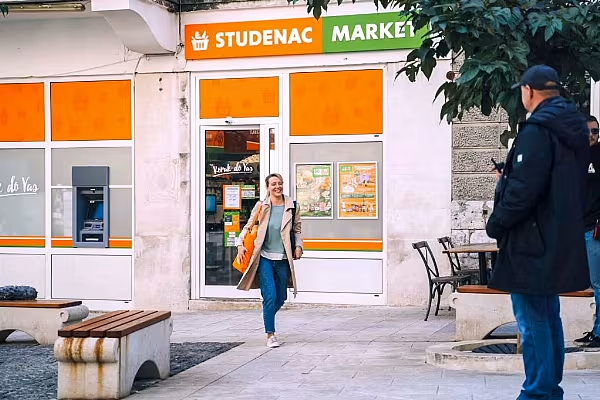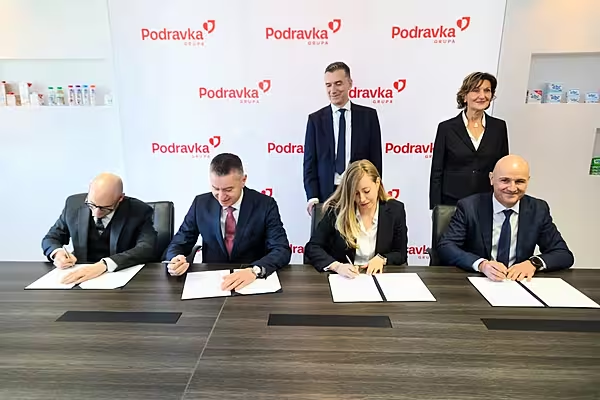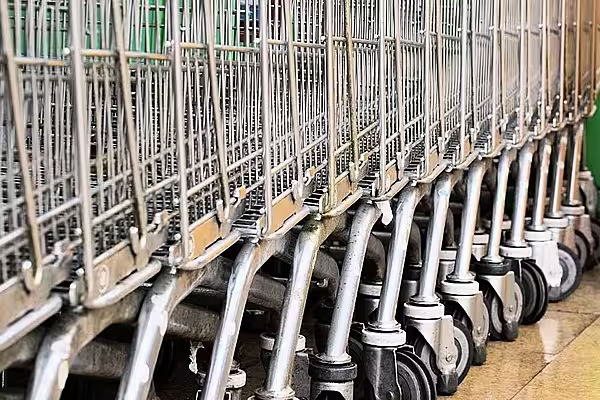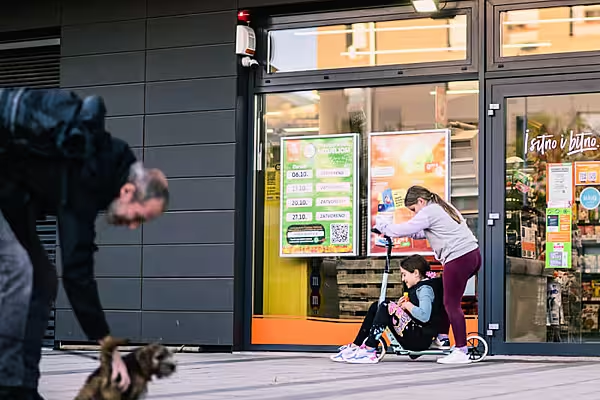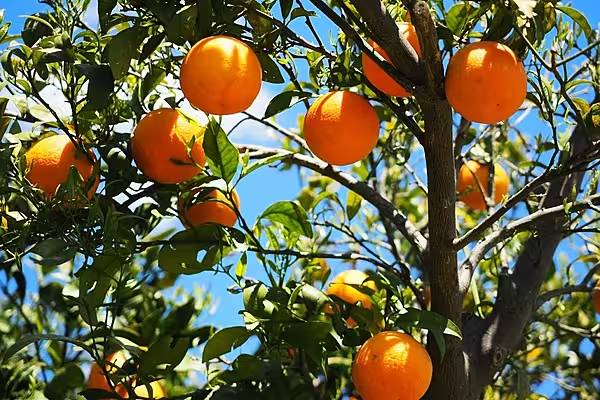Proximity retailer Studenac d.o.o. recently became Croatia’s largest grocer by store count, and it doesn’t plan on stopping there. Stephen Wynne-Jones travelled to Zagreb to meet chief executive Michał Seńczuk. This article first appeared in ESM July/August 2022.
Travellers familiar with Croatia’s Adriatic coastline may have encountered the retailer Studenac over the years. Originating in the port town of Omiš, for close to three decades of its existence it was a largely local player in a highly seasonal marketplace.
That changed in 2018, when founder Josip Milavić sold the business to Enterprise Investors, a Polish private-equity fund that had previously helped Dino and Profi become household names in Poland and Romania, respectively. As of the end of that year, the group operated 384 stores, mainly along the coastline and islands, as well as in Dubrovnik and Split.
Less than four years later, and following a raft of acquisitions – to date, Enterprise Investors has invested more than €260 million in the business, including €120 million in acquisitions – Studenac has established itself as a national player, boasting more than a thousand stores across Croatia and seeking to redefine proximity retailing in the country – or, as the retailer’s motto puts it, Studenac is on a mission to be ‘i sitno i bitno’, in other words, ‘both small and essential.’
Growth Opportunities
While Studenac isn’t yet as large as Fortenova Group’s Konzum – which reported a turnover of HRK 10.71 billion (€1.4 billion) last year – and international giants such as Lidl, SPAR and Kaufland, it reported the highest growth in turnover of any Croatian operator last year, rising by 26.68%, to HRK 2.35 billion (€312.1 million). Turnover is expected to exceed the €500 million mark this year, placing Studenac among Croatia’s top six retailers.
“We’re opening 100 stores this year, while other chains are in the single digits,” explains Michał Seńczuk, Studenac’s chief executive. “Even though Croatia is a really competitive market, Studenac is continuing to grow and increase our market share. Our proximity format gives us room to grow organically.”
Seńczuk has led the retailer since mid-2018, taking up his position following Enterprise Investors’ takeover. He boasts more than 20 years’ worth of experience at various Polish retailers, including Biedronka, Żabka Polska and POLOmarket (which he left to join Studenac). Seńczuk’s time at Studenac has coincided with the biggest expansion in the company’s history, which has largely been fuelled by acquisitions.
“For us, it was a question of how we should approach moving Studenac from being a local player to a national player,” he says. “At the end of 2018 we started our expansion to the northern part of the coastline, and we realised that we couldn’t introduce a Dalmatian-style business into a different region. We realised quickly that sitting in Omiš, we can’t realistically run a business the same way in Rovinj, for example. That made us speed up our search for potential targets.”
Following the takeover of Istarski Supermarketi and Sonik Market in 2019, in 2021 Studenac acquired Biograd na Moru-based retailer Bure Trgovina. This, in turn, was followed by the takeover of Pemo, a Dubrovnik-based operator, in February 2022, which confirmed Studenac as Croatia’s largest retailer by store count.
“The Pemo acquisition was very important for us because it gave us access to the market in Dubrovnik,” says Seńczuk. Other, smaller acquisitions have followed. In April of this year, Studenac took over Slunj-based Kordun, which operates nine stores, while in May, it acquired Pula-based Duravit Trgovina, which has 13 outlets.
“We have been in several situations where we might have approached a retailer about an acquisition and they would tell us, ‘No, my business is solid. I have very loyal customers,’” Seńczuk adds. “Three years later, they come back to say the circumstances have changed, they’ve had a discussion with their family, and they are keen to exit the business.
“That’s the case with around 50% of the businesses that we acquire. They know they can trust us because we started small, like they did.”
Major Acquisition
All this only whet the appetite for, arguably, Studenac’s biggest acquisition to date: Lonia Trgovina, which has just been completed. It adds some 300 stores to its network, as well as, notably, logistics capabilities in Croatia’s central region, potentially leading to further expansion in the north and east of the country.
“As well as giving us additional locations, this acquisition enables us to build a broader logistics platform, which is integrated with what we currently have. That’s very important for us because we need to improve service, we need to improve availability, we need to improve quality, and we need to be more cost-efficient.
“It also enables us to go further with our organic expansion and acquisition strategy in this part of the country. For us, the market is still full of potential.”
As to how large the chain can grow in time? Last year, the group commissioned a consultancy firm to calculate a potential ‘ceiling’ for Studenac in terms of store numbers. It found there was potential for another 2,500 locations, excluding acquisitions – still plenty of growth opportunities left, in other words.
City Convenience
Last year, which also marked Studenac’s thirtieth anniversary, saw the opening of its first stores in the capital, Zagreb – a milestone in itself, given the group’s humble origins – as well as continuing the roll-out of a new concept, ‘To Go,’ with which the business is seeking to establish new parameters when it comes to neighbourhood shopping.
“Entering Zagreb was a significant achievement, for many reasons,” says Seńczuk. “Firstly, it’s a large market – around 700,000 people live here. Secondly, people have a higher purchasing power – they are more likely to try something new – and, thirdly, being in Zagreb gives us some balance with regard to the seasonality of the business in other regions. The Zagreb market is stable all year round.”
As ESM discovered when we visited a number of stores around the capital, facilitating ease of purchase is key in these new outlets, with coffee and fresh orange juice machines prominent, as well as a number of grab-and-go food and bakery items.
“Our research showed that, for people in Zagreb and other large cities, proximity is the most important thing,” says Seńczuk. “It’s the first reason why people choose a store. We want to be seen as a core player in that type of business.”
At the same time, Seńczuk explains, Croatian shoppers still expect a full-service offering, even in a small-format store, so a typical Studenac outlet stocks as many as 3,500 SKUs, often with one or two facings for most products. Staff, too, tend to be hands-on, willing to assist shoppers where required.
“Hospitality has always been at the heart of the business, and that’s also something that can work nationwide. We’re a national player now, but we want to remain local, serving our local communities and building a relationship with our customers.”
Thinking local also underpins Studenac’s CSR strategy. Among its recent sustainability initiatives was a major clean-up event along its Adriatic coast home, which saw divers remove around 140 cubic metres of waste from the water.
“We want to be perceived as a company that is aligned with the places in which we do business,” Seńczuk adds. “We need to take care of the things that surround us.”
Digital And Private Label
As it expands, Studenac is also seeking to bolster its digital capabilities, recently establishing a new digital unit that will serve as a ‘centre of excellence for advanced analytics and innovations’. At the core of this is a new app that aims to improve customer experience and build loyalty. As well as product updates, a store locator, and a ‘culinary corner’ with video recipes, the app enables shoppers to accumulate loyalty points and receive personalised loyalty rewards.
As the retailer tells ESM, the app will also enable the business to gather valuable purchase information and develop a more bespoke offering for its local communities.
“We can gain a lot of data from customers and their behaviour, which is very valuable for us,” says Seńczuk. “Today, through the app, we are able to gain a lot of knowledge about how people do their shopping, and it offers us a possibility to have a direct connection with them.”
Private label, meanwhile, may be a tougher nut to crack – Croatian shoppers are notoriously brand loyal – but Studenac is starting to make the right noises in this area. “We’re at the first stage of our journey. Private label accounts for around 6% of our sales,” says Seńczuk. “This year, that will probably rise to about 9%, and we’re aiming to reach 15% by next year.”
As to the future? The Croatian market continues to adapt – come next January, the country will officially join the Eurozone – and as its retail landscape evolves, so will shopper expectations – all with a uniquely local flavour, of course.
Time will tell, but Studenac may have scheduled its expansion drive perfectly.
Read More: Croatia's Studenac Teams Up With Wolt On Dark Store Development
© 2022 European Supermarket Magazine – your source for the latest retail news. Article by Stephen Wynne-Jones Click subscribe to sign up to ESM: The European Supermarket Magazine.
